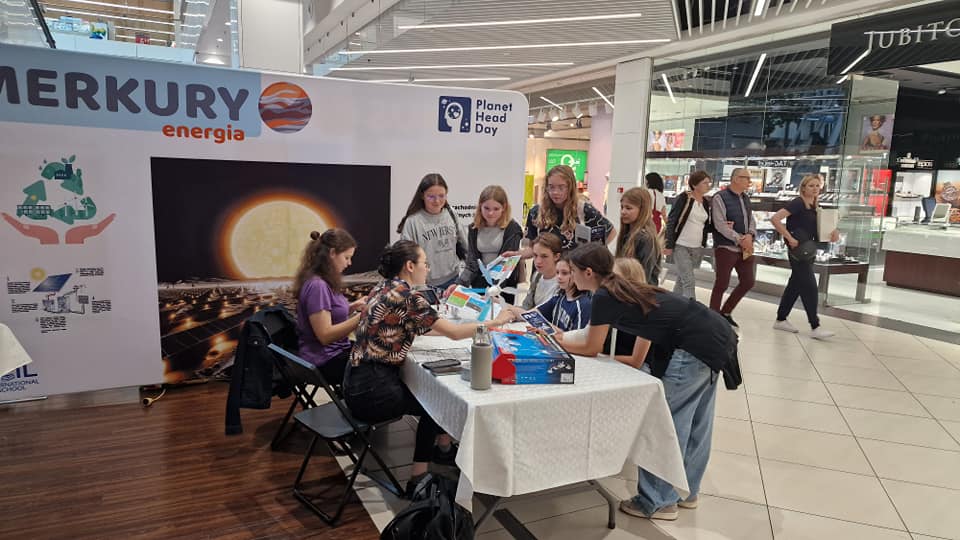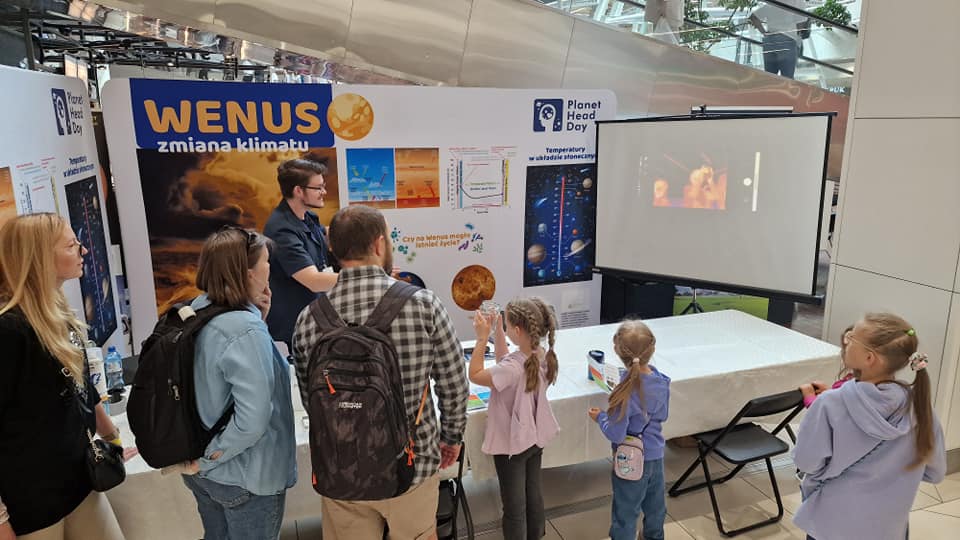

NASA proved that Pluto has a heart.
We prove that Szczecin has a heart.
Planet Head Day has its roots in NASA's New Horizons mission.
The University of Maine representative on this mission, Professor Kevin McCartney, initiated the first event in 2007, referring to the cancer treatment of his close friend, Jeanna McGowan. He came up with the idea of promoting both science and solidarity with cancer patients. The so-called PlanetHeads not only donated money, but
also sacrificed something personal, their hair. The shaved heads
were painted in the color of the chosen planet, referring to the
NASA context. With the recommendation of the head of the
famous NASA mission, Alan Stern, SAIL Foundation
together with McCartney initiated the first Planet
Head Day in Poland ten years later.
A person demonstrating solidarity with the cancer-sick by a donation, who gets publicly shaved and painted as a planet on the stage.
A company, institution or person, who supports our case with a donations or by becoming a patron of a planet station.
An adult or teenager who supports us with the preparation, organization and conduction or the postprocessing of the event.

Mercury is the closest planet to the sun - with a distance of merly one third of the distance between the sun and Earth. Where could be a better place to learn about the construction and function of a solar energy installation?
The Mercury station included an attraction with a series of renewable energy models. Different ways of generating green energy were demonstrated: wind energy and solar energy. Miniature models of a photovoltaic panel and a wind turbine were used. Participants were also introduced to the components of a solar installation and its development in different parts of Poland.
This
material was produced as part of a project co-financed by the WFOŚiGW in
Szczecin with funds from the NFOŚiGW Regional Support Programme for
Environmental Education Part 2) Ecology Fund.

Planet Venus looked like Earth once: Large oceans, a mild climate, a life-friendly atmosphere. Then suddenly, a self-reinforcing climate catastrophy created hellish conditions. The oceans vaporated. Now, Venus is the hottest planet with 450 degrees Celsius. It`s atmosphere has 90 times the pressure than on Earth, and it`s raining liquid metal.
Our station hosted an experience that taught about climate change through fun activities. Participants were made aware of the role of greenhouse gases in ongoing climate change, including the greenhouse effect. A model was presented showing the intense absorption of infrared radiation by greenhouse gases, and this mechanism was visualised using a thermal imaging camera. This is a typical use of hands-on experience rather than the usual boring book learning which is not as effective.
This
material was produced as part of a project co-financed by the WFOŚiGW in
Szczecin with funds from the NFOŚiGW Regional Support Programme for
Environmental Education Part 2) Ecology Fund.
Traditionally, the charity goal is related to help for the cancer-sick. Earlier, Planet Head Day collected money to make possible the renovation of a clinic for cancer-sick children in Szczecin. This year`s charity goal is to collect funds for the organization of a vacation for children suffering of cancer. Both the renovation and the vacation has been organized by the Parents` Association of Cancer Sick Children.
clinic Association
Please support our charity activities with a donation on our charity account, with the title: "Planet Head Day" 100% of your donation will be used for charity purpose, without administration costs.
Account owner: Fundacja SAIL
IBAN: PL14 1020 4812 0000 0202 0160 2937
SWIFT / BIC: BPKOPLPW
Title: "Planet Head Day"
created with
Joomla Page Builder .